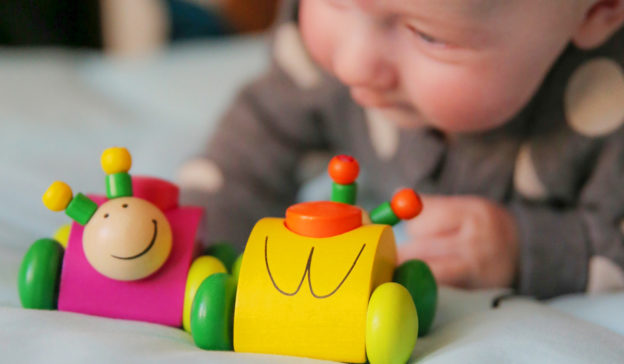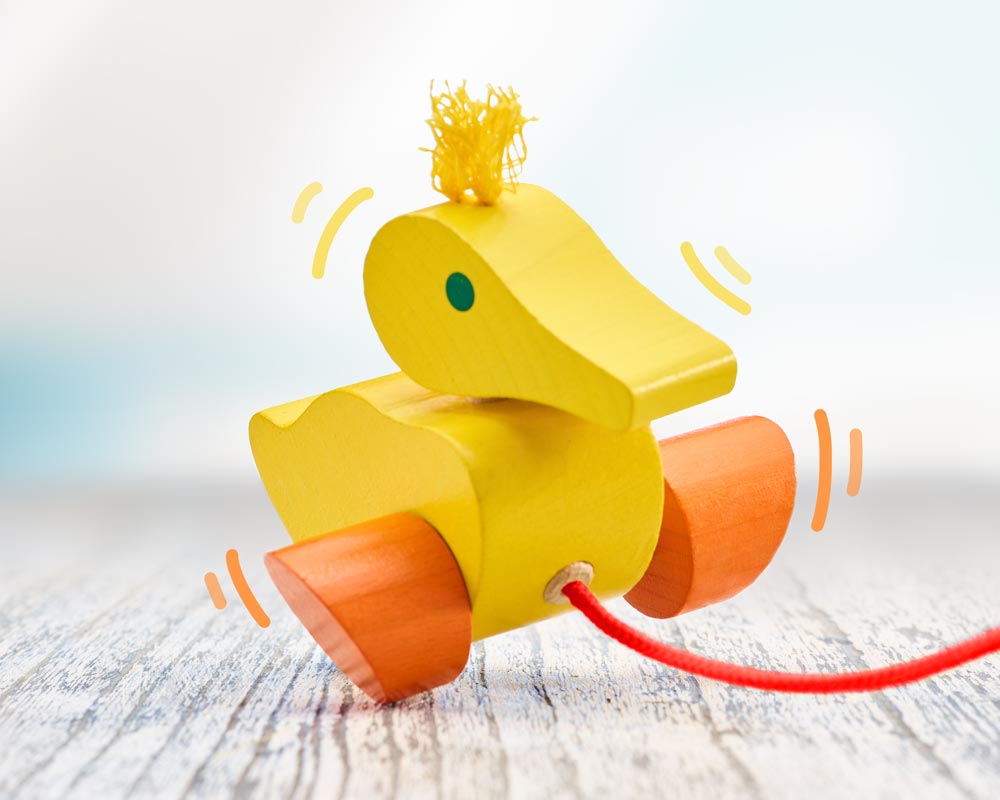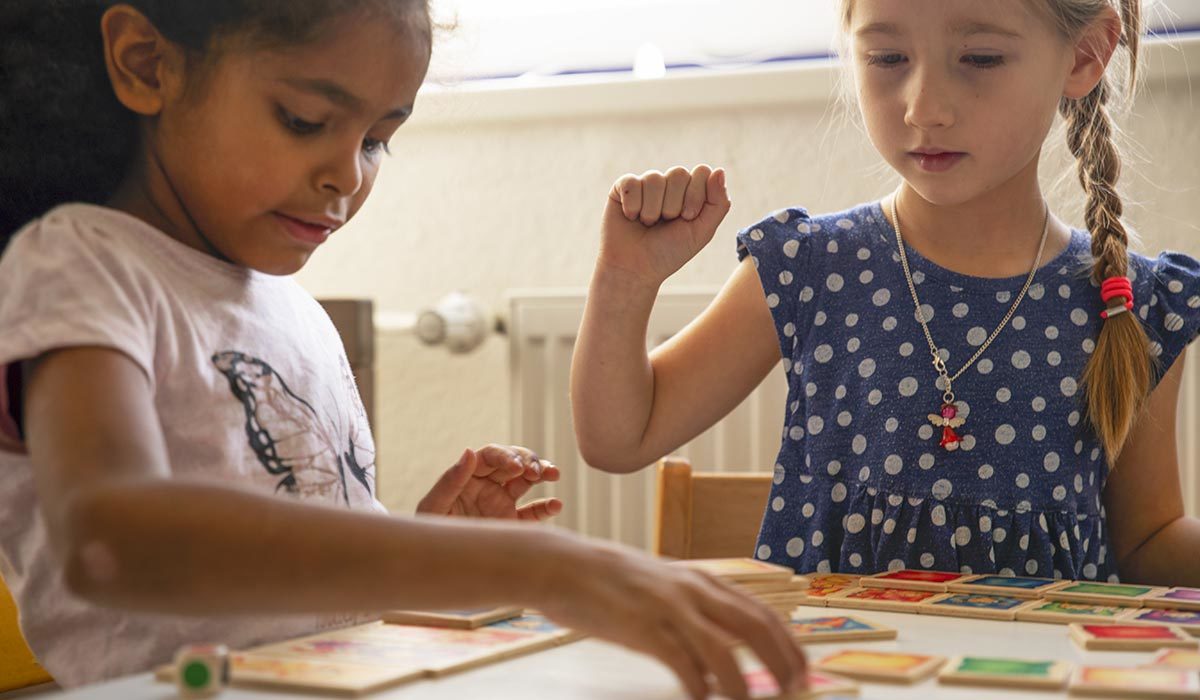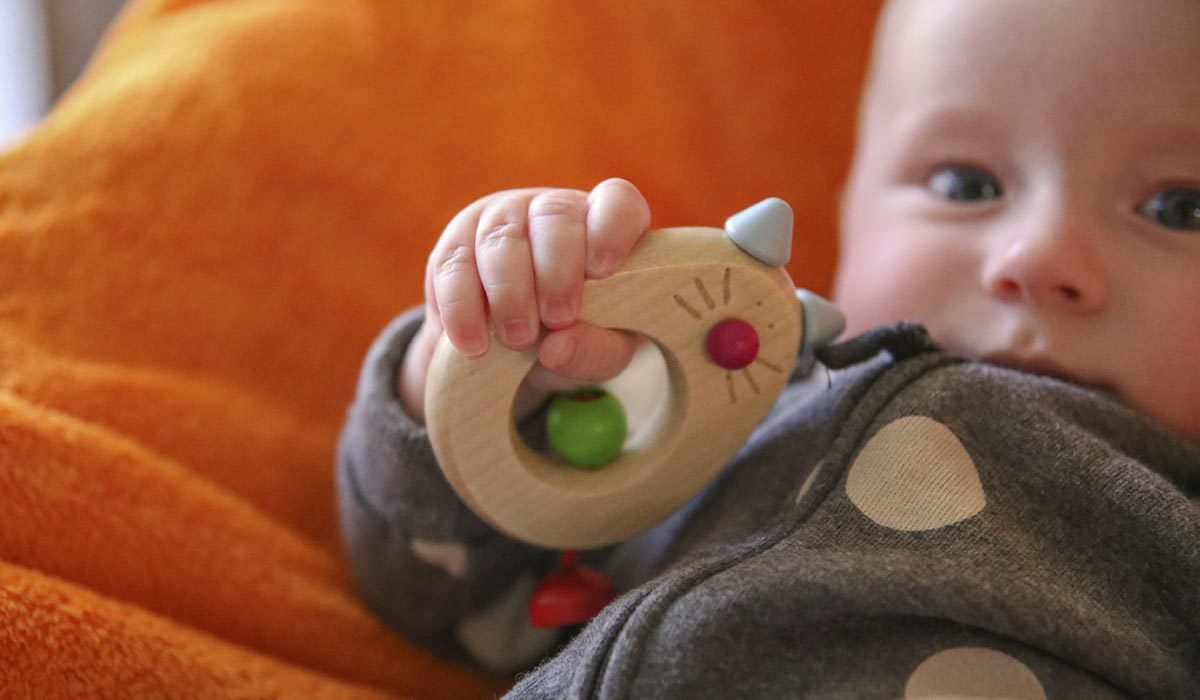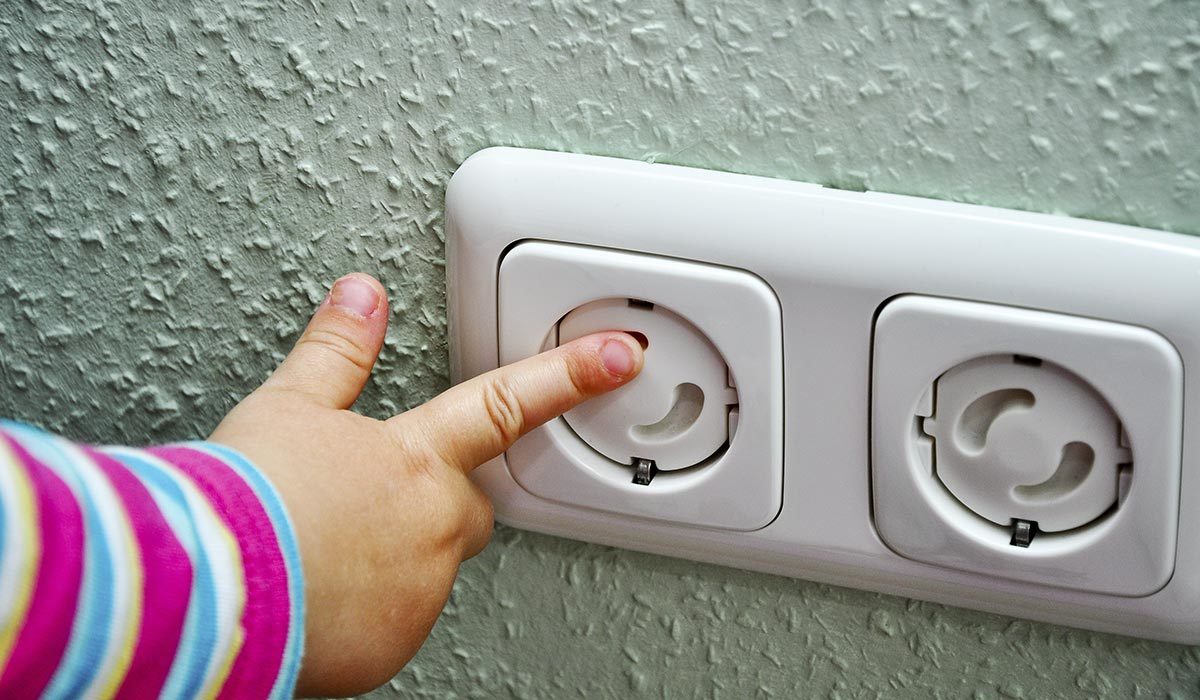Your little charge makes huge developmental steps in the first months. Your child will never again learn anything as fast as at the start of their life. What are the stages of this learning process? And what are the most significant monthly milestones?
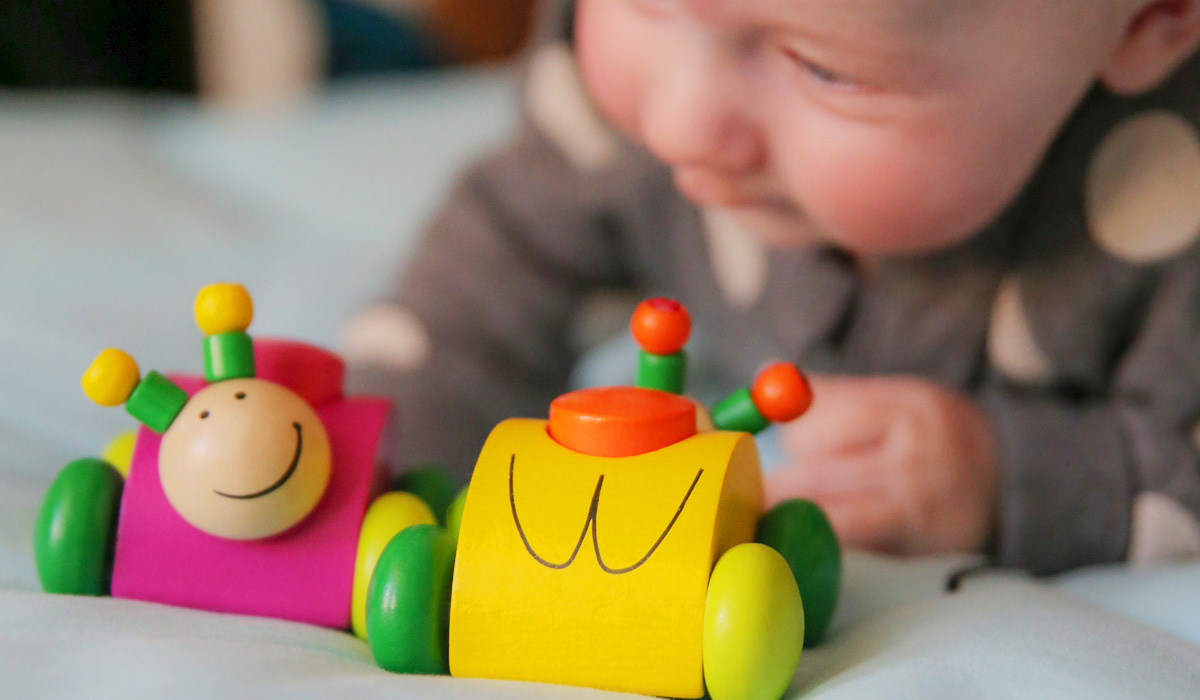
Every baby has their own speed
In their first year babies develop a multitude of new skills. The speed and the order of development differ greatly from individual to individual. Even small humans already have their own minds. This means that comparing your child’s progress with that of another is not meaningful. Please therefore take the following milestones as just a rough guideline:
From about 3 months
Your baby is beginning to get accustomed to life outside the womb. They inspect faces attentively and can also already identify differences in the facial expressions of other people.
By now your baby instinctively loves to grasp, and finds their own hands and fingers especially interesting. Surfaces are minutely examined with the mouth and lips.
A baby of this age cannot yet speak, but it gets increasingly easier for parents to identify the baby’s needs from the noises they make. Thus, a scream of protest at a wet nappy sounds distinctly different to a cry of hunger.
From about 6 months
The baby now also uses their own facial expressions to express feelings and to imitate other people. They deliberately grasp objects in order to examine them. The coordination of individual skills such as seeing and gripping is getting continuously better.
Your baby utters indiscriminate noises and perceives the basic features of their mother tongue. Their body posture also varies increasingly. They use their hands for support and some children already attempt to imitate a sitting position.
From about 9 months
The baby is slowly realising that they are an individual personality with their own will. They also recognise their peers.
Babies like a clear structure in their daily lives and they recognise procedures that are regularly repeated.
Babies now get a lot of enjoyment out of dropping objects. They are fascinated by the noise that doing this makes and also by the fact that something can fall.
It may now be possible for your baby to sit up for a short time. They have also discovered the ability to crawl. Some children, too, are already trying to find the boundaries of their balance by pulling themselves up on furniture in order to stand up by themselves.
From about 12 months
Through their behavior, small children actively show and seek the affection of their parents.
They enjoy laughing and seek physical closeness.
Babies find it increasingly easier to communicate with their environment. They understand requests and prohibitions, they recognise objects and sometimes they name these using their own terms.
The first steps are particularly exciting. Your child might already be able to stand independently and can no doubt make small steps whilst holding your hand. Playful exercises are useful at this stage to strengthen their sense of balance, motor skills, and muscular system.

